ESOL Pathway Program
Program Description
The ESOL (English to Speakers of Other Languages) Pathway Program is a set of five graduate courses designed to (a) strengthen the expertise of educational professionals in the teaching of ESOL and (b) prepare teachers for taking the ESOL Praxis test, which will lead to ESOL endorsement. The program is guided by the Standards for TESOL Pre-K–12 Teacher Preparation Programs, Council for the Accreditation of Educator Preparation (CAEP) standards, and the WIDA English Language Development Standards.
Additionally, course content is aligned to the topics covered in the ESOL Praxis test: (a) Foundations of Linguistics, (b) Foundations of Language Learning and Acquisition, (c) Planning and Implementing Instruction, (d) Assessment and Evaluation, (e) Culture, and (f) Professionalism and Advocacy.
Classes meet in the evenings through an online Zoom format. The program (15 graduate credit hours) can be completed in one year (see program schedule below). Following completion of coursework, workshops will be provided to further support candidates in their preparation for the ESOL Praxis test.
Admission to the Program
Applicants interested in the ESOL Pathway Program are encouraged to meet with the ESOL coordinator to examine their goals in relation to the program. The program may be of particular interest to K-12 teachers who would like to add an ESOL endorsement to their teaching license, as well as to educators wishing to develop skills in working with English language learners.
To apply, please complete the BSU Non-degree Admissions application. All applicants must hold a bachelor’s degree from a regionally accredited institution.
Program Requirements
Completion of the ESOL Pathway Program requires 15 graduate semester hours. The five courses (3 credits each) include the following:
- ESOL 504 – Linguistics for Teachers
- ESOL 512 – Theoretical Foundations of Second Language Acquisition
- ESOL 523 – Teaching in Multicultural Classrooms
NOTE: ESOL 523 may be substituted with RLIT 653: Diversity and Literacy Instruction - ESOL 641 – Methods and Materials for Teaching English Language Learners
- ESOL 658 – Principles of Language Testing
Course Sequence
15 credit hours – Weekly scheduled online Zoom classes that meet in the evenings
Fall - 6 credits
- ESOL 504 - Linguistics for Teachers
- ESOL 512 -Theoretical Foundations of Second Language Acquisition
Spring - 6 credits
- ESOL 523 - Teaching in Multicultural Classrooms
NOTE: ESOL 523 may be substituted with RLIT 653: Diversity and Literacy Instruction - ESOL 641 - Methods & Materials for Teaching English Language Learners
Summer - 3 credits
- ESOL 658 - Principles of Language Testing
- ESOL Praxis Test Practice Workshop
Student Learning Outcomes
Upon successful completion of the program, candidates will be able to:
- Demonstrate knowledge of the various components of language—phonetics, phonology, morphology, syntax, semantics, pragmatics—and their implications for language development.
- Assess different approaches to second language teaching in relation to their theory of language and language learning, teacher and learner roles, and classroom techniques.
- Demonstrate how the interaction across different contexts (e.g., social, familial, academic), can impact the education of culturally and linguistically diverse learners.
- Identify effective strategies, appropriate materials, and useful resources to plan lessons and support instruction in ESL and mainstream classroom settings.
- Plan and devise instruction that integrates content-area reading, writing, listening and speaking skills for English language learners at different ages and ability levels.
- Construct valid, reliable and appropriate language assessment measures for English language learners of different language abilities.
- Evaluate the emerging uses of technology in language teaching/learning and ways it can be used to foster student learning.
Contact
For more information, please contact:
Dr. Peter Parker
Assistant Professor/ESOL Program Coordinator
pparker@bowiestate.edu
